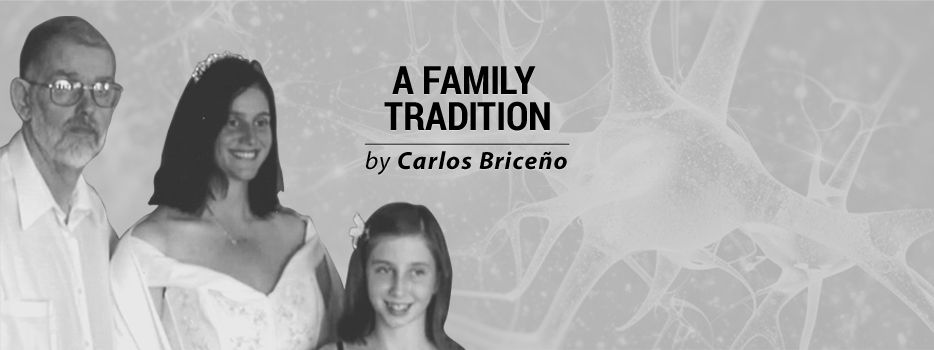Losing My Sense of Taste Taught Me a Lesson in Caregiving
Written by |

Last November, I joined a club.
I share this news with the same spirit that Groucho Marx once wrote his resignation letter to the Friar’s Club: “I don’t want to belong to any club that would accept me as one of its members.”
I’m referring to the COVID-19 club. I knew I had joined it when I developed a fever and experienced foggy thinking, splitting headaches, and constant fatigue several weeks before Thanksgiving. The icing on the cake was losing all sense of taste. Several days later, test results revealed I had joined the more than 90 million COVID-19 club members.
I share all this to report that all those terrible symptoms have disappeared except one: my loss of taste. It still has not fully returned. These days, I eat not because I enjoy the pleasure of food, but because I know I need the calories.
Since my wife, Jill, and our daughter were diagnosed with Huntington’s disease (HD), I view life through a heightened lens — as a class in which lessons are being taught. If given a choice, I would prefer to taste food. I also know that Jill and my daughter would prefer not to have HD. Reality demands we deal with what we’ve been presented.
So, what is the lesson here? What do I need to learn?
As someone who observed Jill’s father suffer with HD and who has read extensively about it, I realize what HD does to a person. It’s a neurodegenerative disease that acts like a knife, nicking away a person’s brain and body, gradually causing the person to feel shattered, like she is dying a slow death from a thousand cuts.
Anxiety accelerates. Reality becomes distorted. Depression increases. Muscles twitch frequently and involuntarily, causing a lack of balance and a change in gait. Speech and swallowing become difficult. A lack of focus and motivation materialize.
In other words, the person gets stripped of a lot of what makes life normal, such as thinking clearly and walking without stumbling. What I have encountered in the aftermath of getting COVID-19 — a loss of taste — is inconvenient. It is being nicked once. A thousand cuts will not follow. But it is an excellent reminder of what it feels like to encounter loss and to be stripped of something normal.
And therein is the lesson, which is invaluable to all caregivers: Everyone knows loss. It may not be loss of taste, but it may be the loss of a job or a person (the death of a family member or friend). As Jill’s and our daughter’s diseases progress, and their sense of normal becomes diminished, I will remember how I felt when my loss of taste occurred. I will remember how difficult it was for me to adjust. I will remember that I needed to accept it as my new normal, rather than get angry about it. I will remember to be gentle with how they react to their sufferings because loss is frustrating. It’s disorienting. It often feels unfair.
So, rather than bemoan that most of my taste is gone, I am grateful for the lesson. Life is a great teacher. My plan is to get an A+ in all my caregiving tests, including being patient, and even more understanding and loving when they deal with their losses. My wife and daughter deserve no less.
***
Note: Huntington’s Disease News is strictly a news and information website about the disease. It does not provide medical advice, diagnosis, or treatment. This content is not intended to be a substitute for professional medical advice, diagnosis, or treatment. Always seek the advice of your physician or other qualified health provider with any questions you may have regarding a medical condition. Never disregard professional medical advice or delay in seeking it because of something you have read on this website. The opinions expressed in this column are not those of Huntington’s Disease News or its parent company, Bionews, and are intended to spark discussion about issues pertaining to Huntington’s disease.



Leave a comment
Fill in the required fields to post. Your email address will not be published.